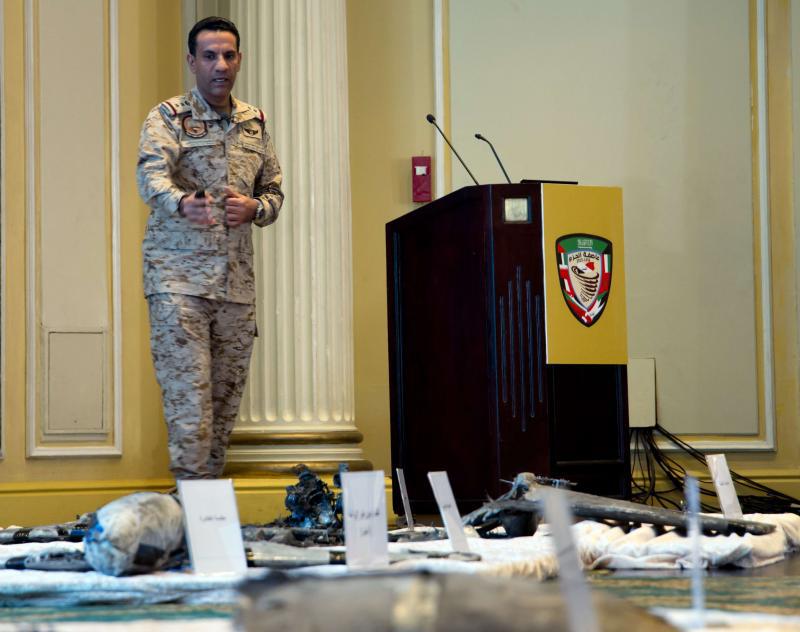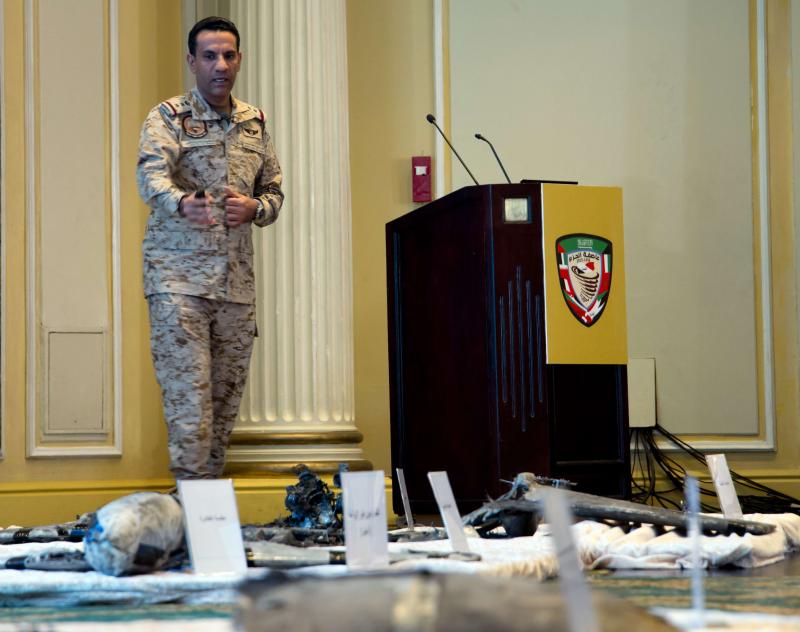Houthi-IRGC ties on Washington’s radar again
The United States has imposed new sanctions on officials of Iran’s Islamic Revolutionary Guard Corps (IRGC), reflecting growing concern in Washington over ties between the Iranian paramilitary organisation and Yemen’s Houthi rebels.
The US Treasury Department released a statement on May 22 saying five Iranians had acted to enable Houthi rebels to launch missiles at cities and oil infrastructure in Saudi Arabia. “The United States will not tolerate Iranian support for Houthi rebels who are attacking our close partner, Saudi Arabia,” US Treasury Secretary Steven Mnuchin said.
The United States said IRGC units supported efforts “to improve the Houthis’ ballistic missile capabilities.”
“Their actions have enabled the Houthis to launch missiles at Saudi cities and oil infrastructure,” Mnuchin said. “They have also disrupted humanitarian aid efforts in Yemen and threatened freedom of navigation in key regional waterways.”
Among those targeted by the United States’ new sanctions were Mahmud Bagheri Kazemabad, identified as the commander of an IRGC aerospace unit involved with missile command, and Agha Jaafari, named as a senior official in the unit. The two individuals allegedly oversee the “transfer of missile components and the deployment of ballistic missile specialists” across the Middle East in support of the IRGC’s activities.
One other IRGC official and two individuals were among those targeted by sanctions, which result in the freezing of any US-held assets and could be extended to other individuals determined to have provided material or financial support to those facing sanctions.
Washington’s move to sanction IRGC figures comes after warnings by Saudi Arabia in March following a Houthi missile attack on Riyadh.
Riyadh has been warning of Iran’s role in providing arms and support to the Houthis since the beginning of the conflict in Yemen. The Saudis say Tehran’s strategy in Yemen follows Iran’s pattern of interference in other countries in the region, such as its support for the Shia Hezbollah movement in Lebanon and interference in Syria.
The IRGC’s arming of Houthi rebels is a major source of concern for the Trump administration and likely played into Trump’s decision to withdraw from the Joint Comprehensive Plan of Action (JCPOA) — the nuclear agreement with Iran.
At a media briefing in December, US Ambassador to the United Nations Nikki Haley displayed Iranian weapons that she said were recovered from battlefields in Yemen.
“The nuclear deal has done nothing to moderate the regime’s conduct in other areas,” she said. “Aid from Iran’s Revolutionary Guard to dangerous militias and terror groups is increasing. Its ballistic missiles and advanced weapons are turning up in war zones across the region. It’s hard to find a conflict or a terrorist group in the Middle East that does not have Iran’s fingerprints all over it.”
Iran has rejected accusations from Saudi Arabia and the United States that it provided ballistic capabilities and other military and financial assistance to Houthi rebels but the new US sanctions show that Washington is taking the threat seriously.
Throughout the conflict in Yemen, Houthis are reported to have obtained sea mines, anti-ship missiles and other explosive materials that increased their ability to threaten shipping lanes in the Red Sea.
“These types of weapons did not exist in Yemen before the conflict,” US Navy Admiral Kevin Donegan said in 2017. “It’s not rocket science to conclude that the Houthis are getting not only these systems but likely training and advice and assistance in how to use them.”
The conflict in Yemen plays a significant role in defining the balance of power in the Middle East. Yemen is particularly strategic for Iran for many reasons, including its position on Saudi Arabia’s porous southern border, its enduring instability and the high concentration of Shia Muslims there. These elements make the country a useful pawn in Tehran’s war with its Arab neighbours, notably Saudi Arabia.
The United States is aware of the need to prevent the region’s balance of power from shifting to Iran and its clients in the region, which is likely why it is increasing financial pressure, not only on Tehran but on its proxies and clients in the region and beyond.
The recent US sanctions follow a move May 15 to designate two top officials of Iran’s Central Bank as “terrorists” for their alleged role in funnelling “millions of dollars” from the IRGC to Hezbollah.
US Secretary of State Mike Pompeo on May 21 outlined a new policy towards Iran, declaring that unless the country complies with American demands, it faces “the strongest sanctions in history” and “unprecedented financial pressure” from Washington.
Ending military support for the Houthis in Yemen is one of the 12 demands Pompeo laid out.
This article was originally published in The Arab Weekly.







